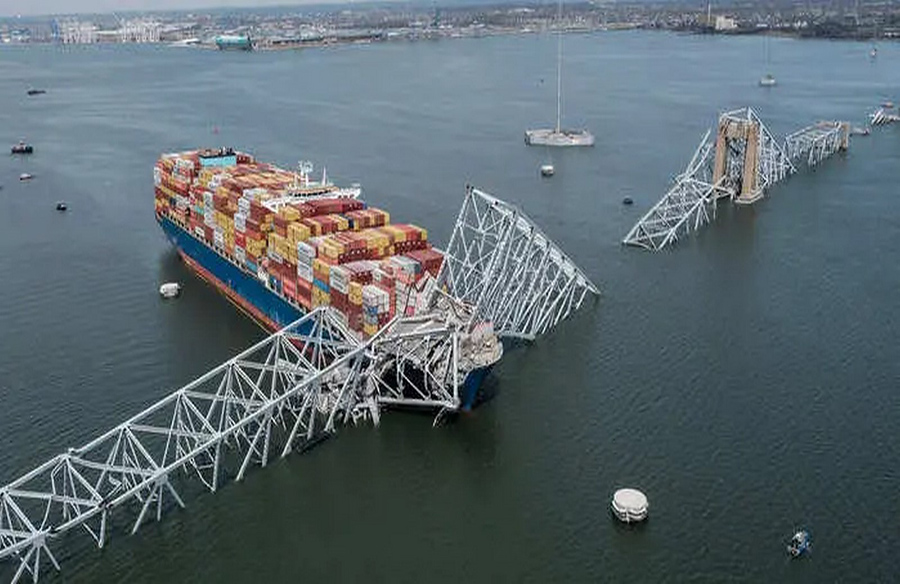
The recent bridge collapse in Baltimore involving a Maersk ship is expected to have significant repercussions on the coal-export market, according to research from the Energy Information Administration (EIA). Here’s a closer look at how this incident is affecting the coal trade and related industries.
Port Closure and Export Implications
The collision at the Francis Scott Key Bridge has led to a temporary halt in shipping activities at the Port of Baltimore, which is a major hub for US coal exports. In 2023, this port accounted for approximately 28% of total US coal exports, amounting to 28 million short tons.
EIA’s Projections and Market Impact
While the EIA had already forecasted a slowdown in US coal exports due to increasing adoption of renewable energy sources, the port closure exacerbates the challenges faced by the coal-exporting sector. This setback has already influenced the stock prices of key players in the coal trade, including Consol Energy and CSX Railroad.
Destination and Demand Dynamics
A significant portion of coal leaving the Port of Baltimore is destined for Asian markets, particularly countries like India, China, and Japan. These nations have been increasing their coal imports from the US, driven by factors such as industrial demand.
Other Market Segments and Potential Effects
Apart from coal, the closure of the Baltimore port could also impact agricultural markets. The port’s proximity to Midwestern markets, which have a high demand for fertilizers, makes it a crucial entry point for products like urea ammonium nitrate (UAN), a liquid fertilizer.
Limited Impact on Energy Markets
While the bridge collapse has significant implications for the coal and agricultural sectors, energy markets such as petroleum products are expected to remain relatively unaffected. The Baltimore terminal primarily imports biodeisel feedstock and edible oils from Central American and Western European countries.
Conclusion: Navigating Challenges in Trade
The Baltimore bridge collapse underscores the interconnectedness of global trade and the potential disruptions that can arise from infrastructure incidents. As stakeholders in the coal, agricultural, and energy sectors adapt to these challenges, there will likely be adjustments in supply chains and market dynamics to mitigate the impact of such events on trade operations.










Leave a Reply